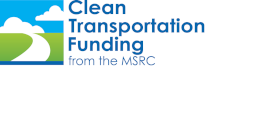Omnitrans is the public transit agency for the South Coast region of San Bernardino County. For the past decade, Omnitrans has demonstrated their commitment to transition their fleet of urban transit buses to low-emission vehicles, including buses fueled with compressed natural gas (CNG). The CNG for their buses is supplied by two (2) L/CNG stations. These stations use liquefied natural gas (LNG) as the feedstock from which the compressed natural gas is derived through a vaporization process. The L/CNG stations are thus capable of refueling both LNG and CNG heavy-duty vehicles.
In order to maintain CNG buses, it is required that the CNG fuel system pressure be eliminated before work can commence. The old practice to reduce CNG pressure was to isolate the CNG fuel tanks on the buses and idle the vehicle until the fuel ran out. This can take anywhere from one to sixteen (16) hours depending on the amount of residual fuel in the tanks. This practice resulted in the waste of CNG fuel and required excessive engine idling.
The new de-fueling system allows for the CNG in the transit bus fuel tanks to be returned to the LNG station storage tank where it can be reused. This saves fuel, reduces engine idling, and significantly reduces the time needed for maintenance or repair of the CNG bus. This reduction in engine idling time reduces the pollutants from the engine exhaust into the atmosphere.
50000.00
Omnitrans performs transit bus maintenance with the onboard CNG storage tanks empty. This enhances safety and allows for easier bus maintenance. The residual CNG in the tanks must be depleted either by venting the fuel to the atmosphere, which is undesirable as CNG (methane) is a green house gas, or by idling the bus engine until the tanks are empty, which creates unnecessary bus exhaust emissions. The availablity of the CNG vehicle de-fueling equipment allows the CNG in the bus to be returned to the LNG storage tank, resulting in an environmental benefit. The project commenced on March 1, 2005. Omnitrans contracted with General Physics to provide design specifications. Northstar, Inc. supplied the materials and labor to install the de-fueling infrastructure at both the San Bernardino and Montclair L/CNG station sites. In addition to de-fueling system design and installation, procedures were developed and Omnitrans personnel trained on its safe operation.
The purpose of this project was to upgrade two existing Liquefied/Compressed Natural Gas (L/CNG) refueling stations located in the cities of San Bernardino and Montclair with vehicle de-fueling equipment. A CNG de-fueling capability allows Omnitrans to off-load the residual CNG in a transit bus back to the LNG storage tank for reuse.
This project resulted in the successful design and implementation of CNG transit bus de-fueling systems at two Omnitrans L/CNG refueling stations.
No significant issues were encountered during this project. The de-fueling systems are both functioning properly.
San Bernardino Associated Governments
Southern California Association of Governments
General Physics Inc.
